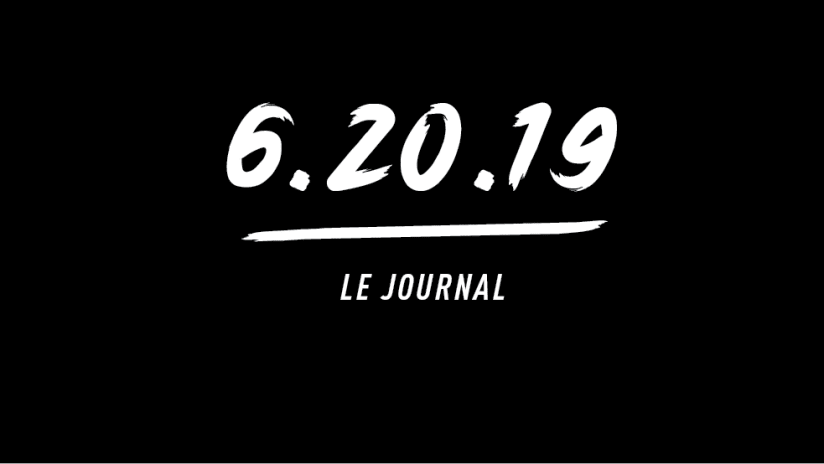The only way there would have been more for to cheer for is if Canada had ended up on top. They didn’t, but with the team’s second-half equalizer, Portland fans still saw their Christine Sinclair get on the board, and within two hours, in the day’s second set of games, both Lindsey Horan and Tobin Heath* had breached the scoresheet, too. They were the only three Thorns who saw action on Thursday, and with the U.S. enjoying a comfortable say against Sweden, it was almost a perfect day for Rose City’s support.
(* - As of this writing, they’re officially calling Heath’s score an own goal. That’s wrong, and I refuse to pretend otherwise. I’ve applied my own VAR.)
Canada eventually fell to the Netherlands, though they’re little worse off for it – having to face Sweden instead of Japan in the next round isn’t a big deal – but with the end of the group stage comes a new series of goodbyes and hellos. Gone is the phase of the World Cup that feels as much Olympics as outright competition, one where mere appearances, firsts, and context feel as important as outcome.
The kickoffs felt as historic as the last whistles. The games happening at all may have been as relevant as the final scores. There is an element of pageantry that parallels an opening ceremony, of walking behind flags in a stadium, that made the festival as consequential as the competition.
Now, things are different. France 2019 will take Friday off, but after that, the real tournament starts. Gone will the platitudes for the Thailands, and the Chiles. Arrived are the bottom lines which, in their curtness, will feel too cold. Can Canada consider this tournament a success if they lose in the next round? We all knew the answer to that before the first round, but the mere asking felt crude. Unfortunately, with the Knockout Round, we’ve reached a crude part of the draw.
With most games in the group stage, there is a margin for error, either in knowing there are more games to come or realizing that, like in Canada’s case, the world changes little with a win or a loss. Even the United States, whose margin in the global perception is less slim than none, would have been fine if they’ve been blown out on Thursday by Sweden. Some people were even talking about a loss.There may be no better example of the difference between the group and knockout rounds than questions about whether, for their own benefit, a team should intentionally lose.
Yesterday, we lamented the strain of divided attentions, something that comes down to managing two ideas at once. It sounds so simple – like you’re an idiot, if you can’t do it – but it’s not really how we follow sports. We tend to want clean outcomes with clean rewards, with no conflicts or externalities interfering with our wants. “I came here to support the U.S. – I came here to support Christine Sinclair – not to assess the benefits of losses.”
In the knockout round, there is only one idea. It’s all simplified. You can start with divided loyalties, but you have to decide before it starts. Who do you want to win more? Because 90, 120, 135 minutes later, one team will be alive; the other, going home.
Maybe, in its crudeness, that’s an oversimplification. But at any point, now, Brazil could be done. Australia, Canada, too. The United States, you’d think less so, but fans still feel the pain of the 2016 loss to Sweden. The World Cup could be over before teams are prepared to go.
Today was the last day we could cheer without that thought, even if, over the last four days, eight teams have already been sent home. But none of those departures came with the suddenness that will accompany Brazil’s, or the disappointment that will come with the Australians’ or the Canadians’. None came with the shock that would come with the U.S.’ ouster.
As of today, the Olympic phase of France is gone. Come Saturday, it’s an actual tournament. As harsh as these rounds will be, the real World Cup starts, now.














